-

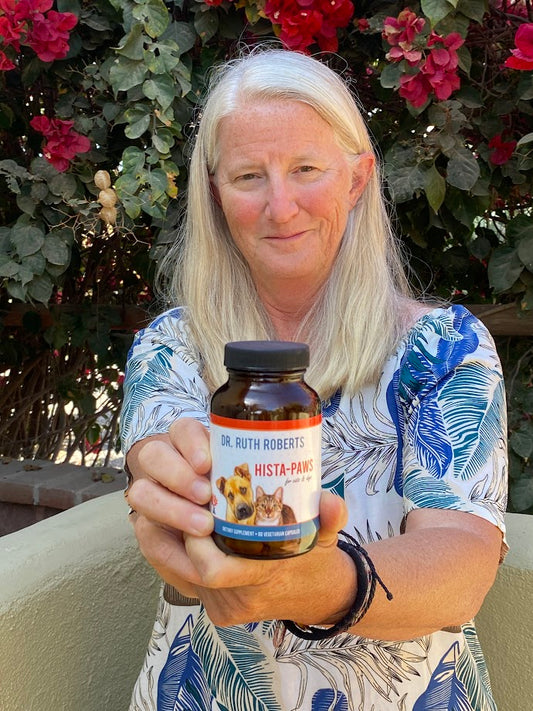
Hista Paws – with Quercetin for Dogs and Cats
Hista Paws – with Quercetin for Dogs and Cats
Vendor:Dr. Ruth Roberts(42)Regular price $49.99 USDRegular priceUnit price perHista Paws is a gentle, plant-based formula made with naturally sourced ingredients like Quercetin and Nettles. Designed for both dogs and cats, it’s a popular choice among pet parents looking for natural ways to support their companions—especially during times of seasonal or environmental changes. Quercetin for dogs is a well-known plant compound found in many fruits and vegetables, while Nettles is a time-honored herb used in traditional botanical blends. Together, they offer a clean, simpl...
-

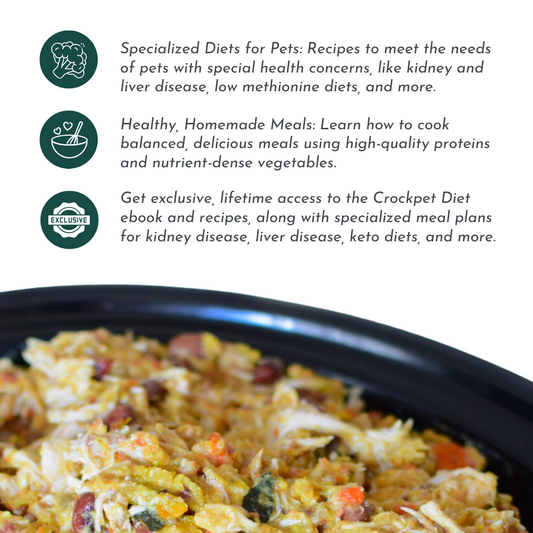
The Original Crockpet Diet™ Ebook and Recipes
The Original Crockpet Diet™ Ebook and Recipes
Vendor:Dr. Ruth's Courses(42)Regular price $49.00 USDRegular priceUnit price per$97.00 USDSale price $49.00 USDIgnite the Chef in You for a Healthier, Happier Pet Are you tired of commercial pet food options that leave you guessing about what's really in your fur baby's bowl? Take control of your pet's nutrition with our comprehensive self-paced course! What You'll Learn🌟 TOCPD Cooking Essentials: Master the art of crafting balanced, nutritious homemade meals for your pets. Discover rotation diet templates tailored for both cats and dogs, ensuring a well-rounded diet. 🐶 TOCPD For Dogs: From succulent...
Sale -
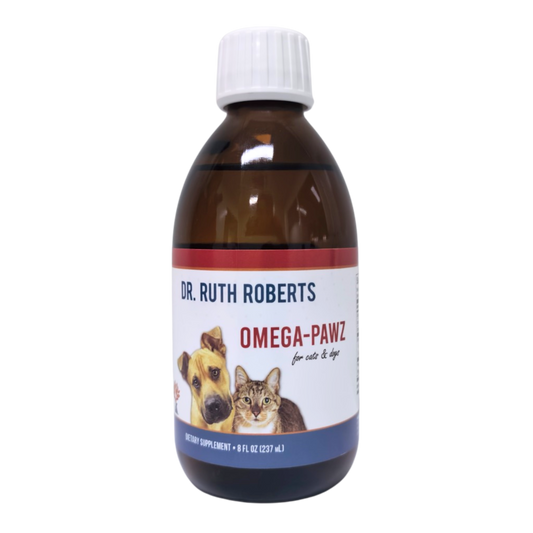
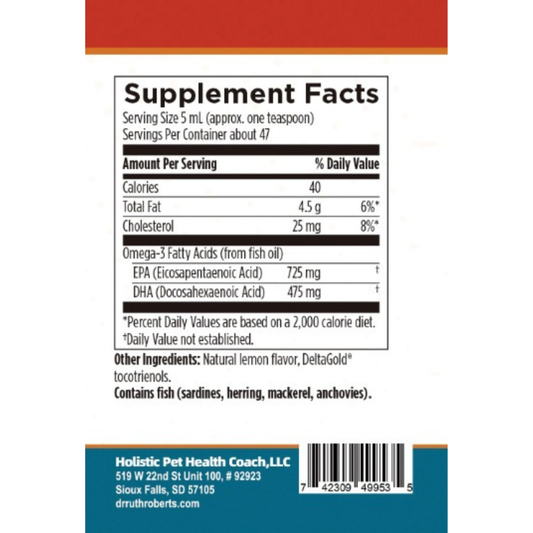
Omega Pawz - Liquid Omega 3 Oil for Dogs and Cats
Omega Pawz - Liquid Omega 3 Oil for Dogs and Cats
Vendor:Dr. Ruth Roberts(42)Regular price $39.00 USDRegular priceUnit price perOmega Pawz by Dr. Ruth Roberts is a liquid omega 3 oil for dogs and cats, thoughtfully made with quality fish oil to complement your pet’s daily feeding routine. This easy-to-use formula includes EPA and DHA, two well-known omega-3 fatty acids found in marine sources. Whether you're looking for omega 3 oil for dogs to include as part of a regular rotation or exploring omega 3 oil for cats for variety in their diet, Omega Pawz offers a simple, pet-friendly option. The light lemon flavor helps ...
-
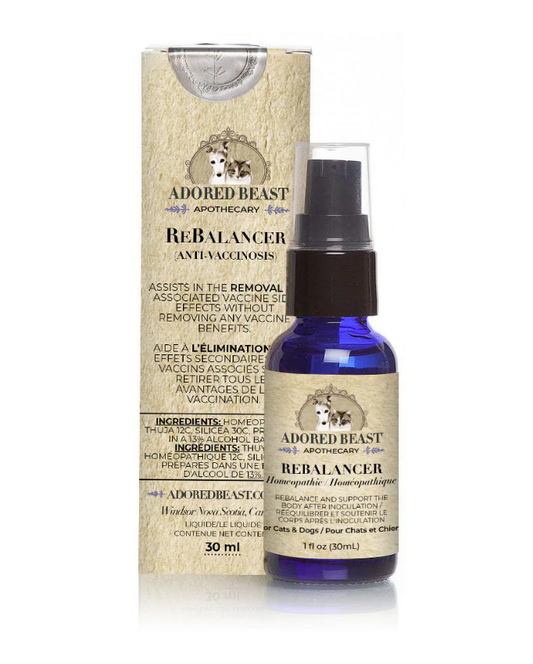
Adored Beast: Rebalancer - Nature Herbal Vaccine Effect for Pets
Adored Beast: Rebalancer - Nature Herbal Vaccine Effect for Pets
Vendor:Adored Beast(42)Regular price $22.40 USDRegular priceUnit price per$27.99 USDSale price $22.40 USDRebalancer is a natural supplement that may aid in supporting recovery from minor imbalances. It combines a blend of ingredients traditionally associated with promoting immune system function and gentle detoxification. Key components, such as Thuja and Silicea, have been used to assist with maintaining balance and well-being during recovery periods. Before introducing any new supplement, consulting with a veterinarian is recommended to ensure suitability for specific health needs. Important N...
Sale -
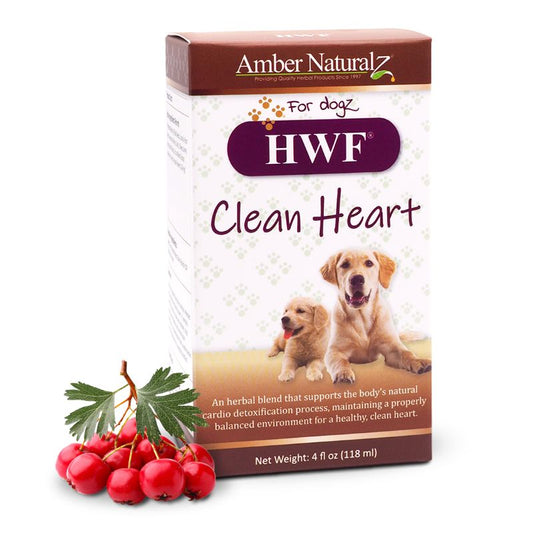

HWF® Clean Heart Supplement for Dogs
HWF® Clean Heart Supplement for Dogs
Vendor:Amber Naturalz(42)Regular price $45.97 USDRegular priceUnit price perHWF® Clean Heart Supplement for Dogs is a natural wellness supplement designed to support your pet’s normal cardiovascular function and overall health. Made with carefully selected, naturally sourced ingredients, this formula encourages balanced wellness and supports your dog’s active lifestyle. Key Benefits: Heart Function Support: Helps maintain normal heart function and healthy circulation, contributing to your dog’s overall vitality. Natural Wellness Support: Designed to support your d...
-
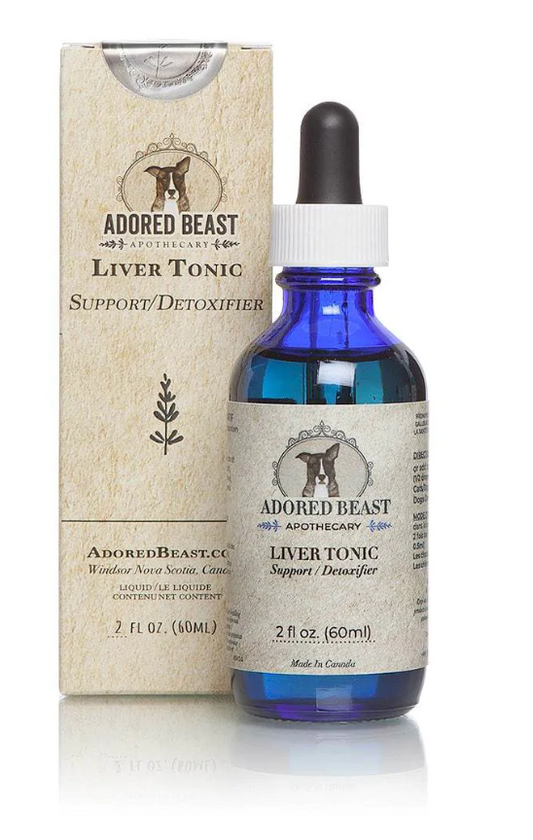
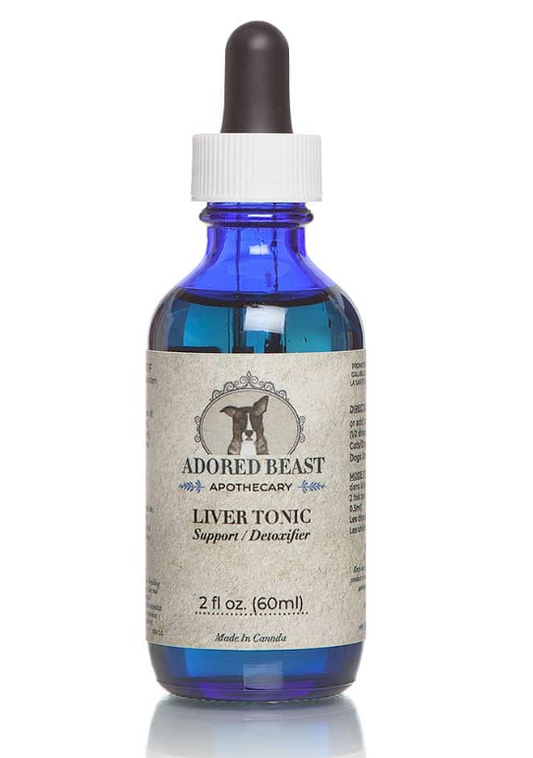
Adored Beast: Liver Tonic 2 Oz
Adored Beast: Liver Tonic 2 Oz
Vendor:Adored Beast(42)Regular price $24.00 USDRegular priceUnit price per$29.99 USDSale price $24.00 USDAs a loving pet parent, are you concerned about your furry friend's liver health? Don't be afraid because Adored Beast Liver Tonic has got your back! A natural and powerful tonic is designed to support your cat or dog's liver function. You'll be pleased to know that we use only high-quality, human-grade ingredients like milk thistle, dandelion root, greater celandine, and barberry. These potent ingredients work together to promote liver detoxification and enhance liver function, helping your ...
Sale -

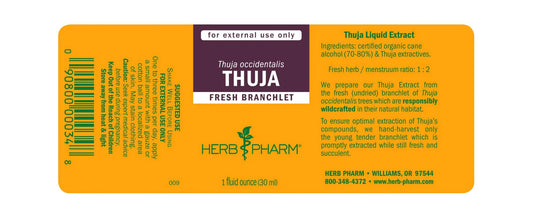
Thuja 1 OZ
Thuja 1 OZ
Vendor:Herb Pharm(42)Regular price $15.98 USDRegular priceUnit price per$27.00 USDSale price $15.98 USDWe prepare our Thuja extract from the fresh (undried) branchlet of Thuja occidentalis trees which are responsibly wildcrafted in their natural habitat. To ensure optimal extraction of Thuja’s compounds, we hand-harvest only the young tender branchlet, which is promptly extracted while still fresh and succulent. Our root values are to serve plants, people and planet from soil to shelf. Our certifications and memberships include: Regenerative Organic Certification on our farm in southern O...
Sale -

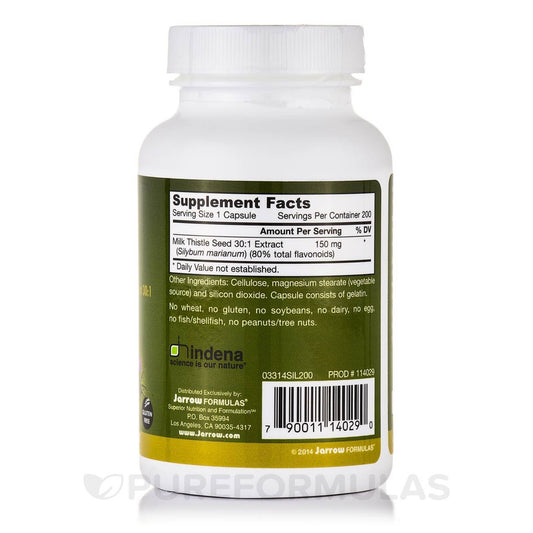
Milk Thistle 150 mg 200 caps | Dr. Ruth Roberts
Milk Thistle 150 mg 200 caps | Dr. Ruth Roberts
Vendor:Jarrow Formulas(42)Regular price $38.49 USDRegular priceUnit price perSupports Liver Function* Jarrow Formulas® Milk Thistle ( Silybum marianum) 30:1 concentrate is standardized to contain 80% total Milk Thistle seed flavonoids, including the important Silymarin fractions isosilybinins A and B, silybinins A and B, silychristinand silydianin. This particular group of flavonoids, collectively known as Silymarin, supports liver function by raising protective glutathione levels. No wheat, no gluten, no soybeans, no dairy, no egg, no fish/shellfish, no peanuts/tree...
LET'S LEARN MORE ABOUT
Vaccines for Pets
Core Vaccine for Pets
Non-core Vaccine for Pets
Important Considerations When Vaccinating Your Pet
Talk to Us
If you need help with starting up the course or getting access to the recipes and videos, please don't hesitate to contact us via call/text at +213 394 2923 / email drruthroberts@drruthroberts.com.

















